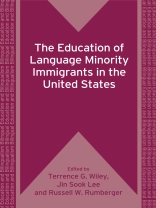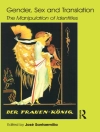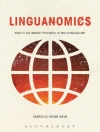The Education of Language Minority Immigrants in the United States draws from quantitative and qualitative research methodologies to inform educational policy and practice. It is based on cutting-edge research and policy analyses from a number of well-known experts on immigrant language minority education in the USA. The collection includes contributions on the acquisition of English, language shift, the maintenance of heritage languages, prospects for long-term educational achievement, how family background, economic status, and gender and identity influence academic adjustment and achievement, challenges for appropriate language testing and placement, and examples of advocacy action research. It concludes with a thoughtful commentary aimed at broadening our understanding of the need to provide quality immigrant language minority education within the context of globalization. This collection will be of value to students and researchers interested in promoting educational equity and achievement for immigrant language minority students.
สารบัญ
Introduction: Education of Language Minority Immigrants in the United States: Introduction, Background and Overview – Terrence Wiley & Jin Sook Lee
Ch. 1: A Language Graveyard? The Evolution of Language Competencies, Preferences and Use Among Young Adult Children of Immigrants – Rubén G. Rumbaut
Ch. 2: The Economics of Language for Immigrants: An Introduction and Overview – Barry R. Chiswick
Ch. 3: Immigration, Race, and Higher Education Outcomes – Christine Qi Liu, Robert H. Tai & Xitao Fan
Ch. 4: Immigrant Youth in High School: Understanding Educational Outcomes for Students of Mexican Origin – Regina Cortina
Ch. 5: A Synthesis of the Roles of Heritage Languages in the Lives of Children of Immigrants: What Educators Need to Know – Jin Sook Lee & Debra Suarez
Ch. 6: Assimilation and Resistance: How Language and Culture Influence Gender Identity Negotiation in First Generation Vietnamese Immigrant Youth – Diem T. Nguyen & Tom Stritikus
Ch. 7: Agentive Youth Research: Towards Individual, Collective, and Policy Transformations – Kathryn A. Davis
Ch. 8: The Need for Multiple Measures in Reclassification Decisions: A Validity Study of the Stanford English Language Proficiency Test* – Kate Mahoney, Tom Haladyna & Jeff Mac Swan
Ch. 9: Immigrant Students, English Language Proficiency, and Transitions From High School to Community College – George C. Bunch
Ch. 10: Commentary: Language, Immigration and the Quality of Education: Moving Toward a Broader Conversation – Guadalupe Valdés
เกี่ยวกับผู้แต่ง
Dr. Terrence G. Wiley is Professor Emeritus at Arizona State University (ASU), where he served as Executive Dean of the Mary Lou Fulton Institute and Graduate School of Education and Director of the Division of Educational Leadership and Policy Studies. He is also a Special Professor in the Graduate College, University of Maryland, and immediate past President of the Center for Applied Linguistics in Washington, DC, as well as Professor Emeritus in the College of Education at California State University Long Beach. Professor Wiley’s teaching and research have focused on educational and applied linguistics; language policies; the history of language diversity in the United States; literacy and biliteracy studies; and second, bilingual, and heritage-community language education. Professor Wiley co-founded the Journal of Language, Identity and Education and the International Multilingual Research Journal (both Routledge, Taylor & Francis), and he is co-editor of the Springer Series in Language Policy. Among his books are the Handbook of Heritage, Community, and Native American Languages (co-editor, Routledge); The Education of Language Minority Immigrants in the United States (co-editor, Multilingual Matters); Literacy and Language Diversity in the United States, 2nd Ed (author, Center for Applied Linguistics); and Ebonics in the Urban Education Debate, 2nd Ed (co-editor, Multilingual Matters). He is also co-editor of Review of Research in Education, Volume 38, “Language Policy, Politics, and Diversity in Education.” Professor Wiley has received numerous awards for scholarship, teaching, and service, including the American Association for Applied Linguistics Distinguished Scholarship and Service Award (2014), and the Joshua Fishman Award for Heritage Language Scholarship from the National Heritage Language Resource Center at the University of California, Los Angeles (2018).












